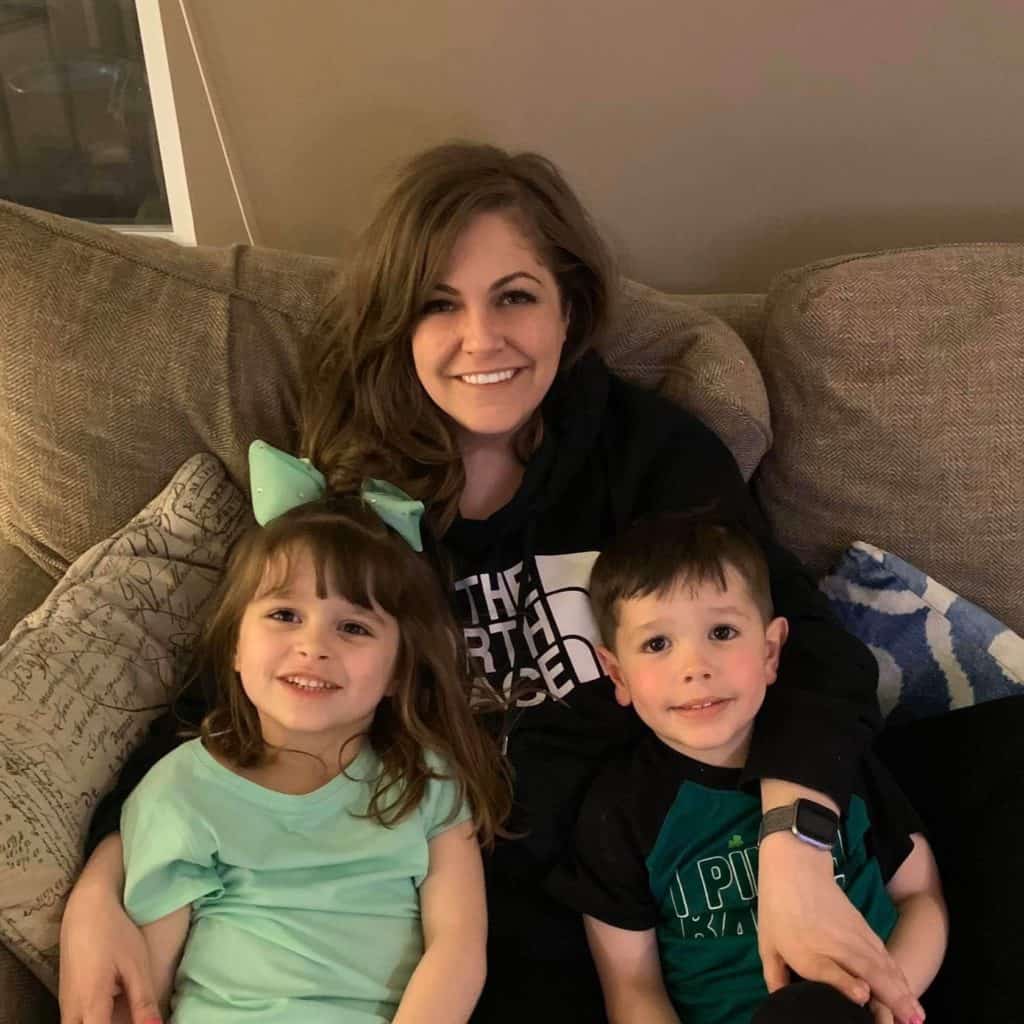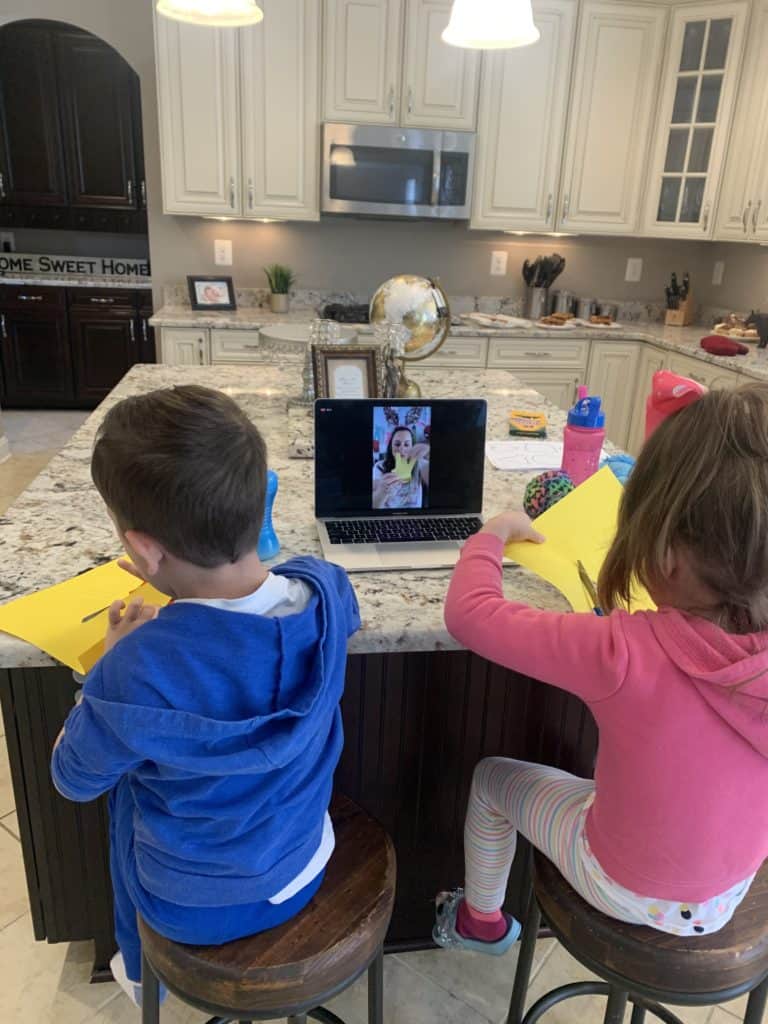We’re In It Together
Coping with a Crisis
We are living in stressful times. And although everyone reacts differently to stressful situations, there are common reactions that we all may be experiencing.
Feelings of fear about your health and the health of your loved ones is a top worry. Changes in sleep or eating patterns are common. An inability to concentrate is likely, as is worsening of chronic health problems and increased use of alcohol, tobacco or other drugs.
“When you ask adults what reaction they’re having to the coronavirus, you hear one of two things: disorientation or fear,” says Barbara Ripani, a licensed clinical social worker in Owensville. “We are very disoriented. We feel strange; watch old movies; stay up all hours; have nightmares and cook big meals.”
Wondering what will happen next is stressful. But don’t worry; your brain is already hard at work trying to help you.
“There’s an essential survivor in all of us,” Ripani says. “Mostly, you don’t have to think it out. There’s a hidden part of you that’s already coping and is extremely courageous. You’ve seen this part of yourself before.”
Ripani likens that side of you to the CEO of a large corporation.
“Part of you is working throughout all of this,” Ripani says. “It might seem overwhelming, but you will see that you have all the skills you need to get through it. That part of you is already busy, doing its job.”
To combat feelings of fear, anxiety and uncertainty—and to help the part of you already quietly working through this stress—you need to be proactive about your mental health.
“Use the things in your emotional arsenal,” Ripani says. Courage, coping mechanisms and resilience will help you weather this storm.
When it comes to children, they react, in part, to what they see from the adults around them. The Centers for Disease Control encourages parents and caregivers to deal with the situation calmly and confidently. For many, that means coming up with new routines of normalcy during extraordinary times.
“We’re usually running around to all of the many places that Calvert County has to offer like the library, aquatic center, marine museum, parks and animal shelters,” says Sherri Verdon of Huntingtown, mom to 5-year-old Tori and 3-year-old Shane.
Social distancing orders and a stay-at-home order have forced Verdon to adapt.
“We are now limited to the four walls of our home, but have found a lot of ways to keep Tori and Shane busy, engaged, learning and happy,” Verdon says.
Verdon has come up with so many engaging activities that she started a Facebook page to share ideas with other families.
SOMD Safe at Home—Ideas and Activities for Kids and Families— includes science experiments such as making elephant toothpaste and lava lamps and family games like flashlight tag and blindfold taste tests.
The family also builds forts and pillow mountains and explores sensory activities such as filling a sandbox with deer corn. “Deer corn is easy to clean up and less expensive than sand,” Verdon explains.
Verdon isn’t the only one engaging others with creative ideas.
Kate Harrison of Huntingtown has enlisted neighbors in keeping her kids entertained. “The favorite activity of our quarantine has been painting rocks and hiding them throughout the community,” Harrison says. “It was such a hit that our neighbors joined in the fun and hid new rocks for everyone to find.”
“My kids have been enjoying their time outside,” says Harrison, mom to 9-year-old Jack and 3-year-old Reid. “They’ve painted pictures with painter’s tape; gone on many hikes; ridden bikes and tractors; baked and decorated tons of cookies and FaceTimed with all of the relatives and friends.”
Self-Care During a Crisis
Avoid excessive exposure to media coverage of COVID-19:
- Take breaks from watching, reading, or listening to news stories. It can be upsetting to hear about the crisis and see images repeatedly.
- Try to do some other activities you enjoy to return to your normal life.
- When you do read news, avoid media outlets that build hype or dwell on things that can’t be controlled. Instead, turn to reliable sources that provide information about how to protect yourself, such as the Centers for Disease Control and Prevention (CDC).
Take care of your body:
- Take deep breaths, stretch or meditate
- Try to eat healthy, well-balanced meals
- Exercise regularly
- Get plenty of sleep
- Avoid alcohol and drugs
- Make time to unwind and remind yourself that strong feelings will fade
- Share your concerns and feelings with a friend or family member
- Maintain a sense of hope and positive thinking
- Maintain proper infection control techniques such as hand-washing and social distancing
- Check how realistically you are viewing the situation. The CDC has continually pointed out that the vast majority of individuals, even if they do get sick, will not become terribly ill
- Stick to credible sources of information. Social media is not that source.
- Stay connected. Maintain healthy relationships. Talk to your friends on the phone or virtually. Staying at home and distancing from others should not mean you are completely isolated. Reaching out to people you trust is one of the best ways to reduce anxiety, depression, loneliness, and boredom during social distancing, quarantine, and isolation. You can use the phone, email, text messaging, and social media to connect with friends, family, and others. Talk “face to face” with friends and loved ones using Skype or FaceTime.
Source: Maryland Dept. of Health




